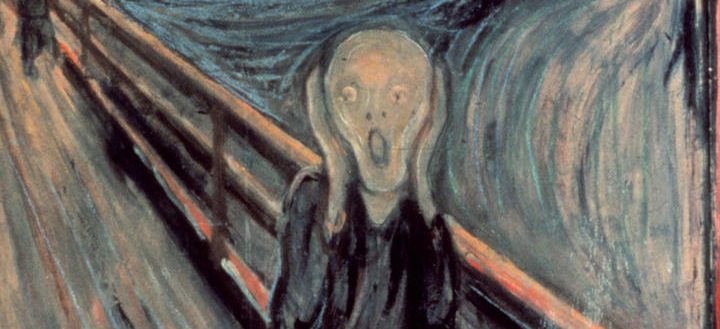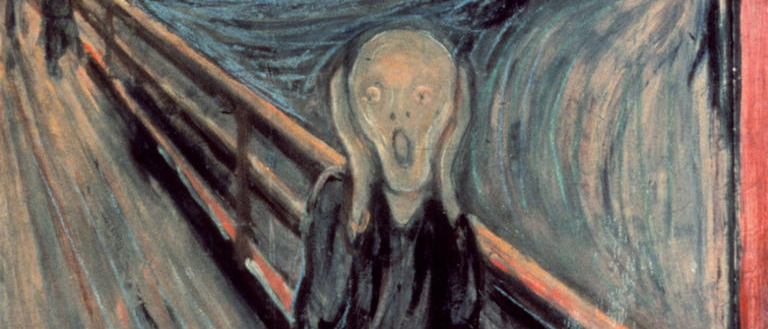Every time our country or the world faces a major crisis, people ask, “Is this the end of the world?” And every time a crisis occurs, Christians begin to open their Bibles to that strange and mysterious book in the very back, the book of Revelation, to seek answers.
In our collective consciousness we have been conditioned to believe this book says something about how the world is going to end, and we almost automatically begin poring over its words to see if we can decipher where exactly we fit in.

Brandan Robertson
Here’s the thing most people don’t realize: Revelation properly understood in its culture and context is about real events that already have happened. Revelation is less a book of prophecy series and more a series of astute observations about politics, greed and evil, and how they bring about destruction and pull us away from God’s vision of a renewed world.
Not only does every generation believe they are living in the end times, but every generation also finds striking parallels between what’s happening in the world around them and the book of Revelation. This is its power.
“Every generation finds striking parallels between what’s happening in the world around them and the book of Revelation. This is its power.”
John was writing his observations of the empire in his day — the greed, the hubris, the oppression. He could see it digging its own grave, and he hoped when it fell, Jesus could come back and establish God’s kingdom of righteousness once and for all.
In Revelation 1:1-19, John has a vision of Jesus that is nothing short of majestic. Jesus is adorned with long flowing robes, like those of the emperor, and a golden sash. When John describes this version of Jesus to the churches in Asia, he seeks to encourage them, letting them know Jesus is more majestic, powerful and glorious than Domitian, the current emperor who also happened to call himself the “Lord God.”

“St. John the Evangelist,” Print by
Cornelis Visscher, 1629-1658. Courtesy of Smithsonian Design Museum
When John sees Jesus in his vision, he falls on his face in fear, but rather than accepting this act of subjugation, Jesus speaks a powerful word to John: “Do not be afraid.”
Yet, John had every reason to be afraid: He was exiled on the island of Patmos, cut off from his beloved church who likely would face intense persecution, with many of them being killed. The empire seemed unstable, and now he finds himself in a strange trance in front of Jesus. Fear seems like precisely the right response.
We also have a reason to be afraid in our moment of history, don’t we? All is not right in our world. We have a world governed by wicked rulers who have no regard for truth and no respect for law. We have a world stricken by a pandemic that cost millions of lives. Our economy is hanging on by a thread. Racism has been unleashed and affirmed across our country. The earth is heating at record rates, destroying habitats and threatening species with extinction.
Today, those who claim to follow Christ are not only endorsing but actively participating in all these evils. None of us knows what is to come, and it very much feels like it could, in fact, be the end of the world as we know it.
“This image of Jesus cuts through the noise of our fear and says, ‘Do not be afraid, for my way can bring healing and restoration.’”
In this moment of great fear, we’ve been given a gift: This image of Jesus that cuts through the noise of our fear and says, “Do not be afraid, for my way can bring healing and restoration.”
Up to this point, John has been courageous. He’s preached the words of Jesus, painting a stark contrast with the corrupt practices of the empire, and he is suffering for it. Yet as John sees Jesus in power and glory, he is motivated to keep speaking up and proclaiming God’s truth in an age of lies.
John writes in verse 9: “I share with you in the suffering, the kingdom and patient endurance we have in Jesus.” He is saying the subversive role of Christians in a corrupt world is to live boldly and courageously, making the kingdom of God a reality in our own lives and societies through demanding justice and living justly, while also knowing that doing so will result in our suffering and will require patient endurance.
These words are intended to help us think realistically about what is to come while also quelling our fears. Throughout Revelation, John doesn’t skirt around the evil and suffering he sees in his world but invites Christians to a posture of subversive faithfulness, trusting Jesus will have the last word. In this way, Revelation is an encouragement to Christians to be willing to stand up, speak up and live differently when confronted with corruption, regardless of what the personal cost might be.
These words encouraged the earliest followers of Jesus in their darkest moments, and they can encourage us too as we face unprecedented challenges of our age. The brave faith of John comes from the fact that he believed the way of Jesus is the way of victory.
If our hope is in our own wisdom to fix the broken system of America, we are doomed. But if we believe God is with us, in us and working through us, as we work and strive and seek to make a better world, then we have reason for great hope. We have a reason to keep our heads held high and to keep dreaming and working and believing that the kingdom of this world can become the kingdom of our Lord — a world of righteousness, equity and peace for absolutely everyone.
Brandan Robertson is a New York City-based author, activist and public theologian working at the intersections of spirituality, sexuality and social renewal. He serves as lead pastor of Metanoia Church, a digital progressive faith community, and is host of The Unorthodox Podcast. He is the author of seven books on spirituality, justice and theology. Named by the Human Rights Campaign as one of the top faith leaders leading the fight for LGBTQ equality, Robertson has worked with political leaders and activists around the world to end conversion therapy and promote the human rights of sexual and gender minorities. He earned a bachelor of arts degree in pastoral ministry and theology from Moody Bible Institute, a master of theological studies degree from Iliff School of Theology and a master of arts in political science and public administration from Eastern Illinois University. He is currently pursuing a Ph.D. in religion at Drew University. This column is excerpted from his forthcoming book, Dry Bones and Holy Wars: A Call for Social and Spiritual Renewal.


